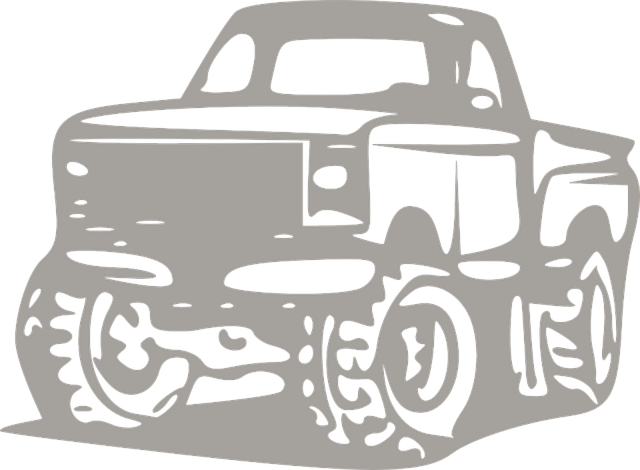In McAllen, Texas, shackles, once tools of restraint with dark historical connotations, have evolved into essential components across various industries, including automotive maintenance. From their past use in confinement and oppression, particularly during the slave trade, to modern applications like securing wheels during tire rotation services, shackles now serve practical purposes. Different types, such as chain shackles for heavy-duty tasks and wire rope shackles for flexibility, are used based on industry needs. Metaphorically, "shackles" represent societal constraints hindering freedom and autonomy, urging recognition and challenge for an inclusive society. Modern applications include industrial security and pet care, with tire rotation services highlighting their utility in extending vehicle lifespans. Breaking personal shackles involves a multi-faceted approach including mindfulness meditation, CBT, support networks, and self-care practices, mirroring the importance of regular mental and emotional assessments for community well-being.
“Shackles, a historical symbol of restraint, have evolved far beyond their brutal origins. This article delves into the multifaceted world of these metal devices, exploring their historical context, diverse applications from industrial uses to pet care, and their impact on human freedom. We uncover modern variations, alternative solutions, and safety measures, highlighting the ongoing relevance of shackles in our contemporary world.
Keywords like ‘tire rotation McAllen’ subtly integrated, reflect the diverse reach of this metal art.”
- Understanding Shackles: A Historical Perspective
- Types of Shackles and Their Applications
- The Impact of Shackles on Human Freedom
- Modern Use Cases: From Industry to Pet Care
- Breaking Free: Shackle Alternatives and Safety Measures
Understanding Shackles: A Historical Perspective

Shackles have evolved from ancient tools of restraint to modern components in various industries, including automotive maintenance. Historically, shackles were used as a form of physical bondage, particularly during the slave trade, where they confined and controlled individuals. These metal chains, often made of iron, had a profound impact on societies, symbolizing oppression and struggle. Over time, their purpose shifted from restraint to practical applications in maritime and construction sectors.
In modern times, the term ‘shackles’ takes on new meanings, especially in vehicle care. In McAllen, tire rotation services, for instance, may involve using specialized shackles to secure wheels during maintenance procedures. This historical connection between shackles and confinement now finds its place in routine automotive tasks, showcasing how tools from the past can adapt to meet present-day needs, such as ensuring proper tire alignment through efficient tire rotation methods.
Types of Shackles and Their Applications

Shackles come in various types, each with distinct features and applications. One common category is the chain shackle, often used for heavy-duty tasks like tire rotation services in McAllen, where its robust design offers superior strength and durability. These shackles are essential for securing heavy equipment, machinery, or vehicles during transport or storage.
Another type is the wire rope shackle, ideal for applications requiring a higher level of flexibility. They are commonly employed in construction, marine, and automotive industries. For instance, when it comes to vehicle maintenance, including tire rotation procedures, these shackles can facilitate secure fastening and unfastening processes due to their easy-to-use locking mechanisms, making them a preferred choice for many professionals in McAllen.
The Impact of Shackles on Human Freedom

Shackles, historically used as tools for restraint and control, have had a profound impact on human freedom. Their mechanical design symbolizes the physical and psychological constraints that societies have imposed on individuals throughout history. From ancient times to modern era, shackles have been employed to bind, limit, and subjugate people, often based on factors like race, gender, or social status. This oppressive tool represents the systemic issues within institutions and societies that restrict personal growth and autonomy.
In modern contexts, the term “shackles” can metaphorically refer to societal norms, prejudices, and structures that continue to bind individuals, hindering their ability to pursue opportunities and reach their full potential. Just as regular tire rotation is essential for vehicle maintenance, freeing oneself from these shackles is crucial for personal development. In McAllen or any other city, recognizing and challenging these constraints can pave the way for a more inclusive, equitable, and liberated society, ensuring everyone has the chance to thrive.
Modern Use Cases: From Industry to Pet Care

In contemporary times, the concept of “shackles” has evolved far beyond its historical connotations. Today, the term is often used metaphorically to describe constraints or barriers in various fields, but it also finds practical applications in unexpected areas. For instance, in the industrial sector, specialized shackle hardware is utilized for securing heavy machinery and equipment, ensuring safety during transportation and operation. This modern use case reflects a shift towards enhanced productivity and risk mitigation.
Beyond industries, even pet care has embraced innovative uses of shackles or their equivalents. Pet restraints and carriers, designed with comfort and safety in mind, allow owners to transport their furry companions securely during travel, ensuring a stress-free experience for both pets and owners. Similarly, tire rotation services in McAllen, Texas, employ specialized tools and techniques to rotate and balance tires, preventing uneven wear and extending the lifespan of vehicles, showcasing yet another practical application that touches everyday life.
Breaking Free: Shackle Alternatives and Safety Measures

Breaking free from shackles involves exploring alternative methods and safety measures that promote liberation and empowerment. In the context of personal growth, this could mean identifying and shedding limiting beliefs or self-imposed restrictions that hinder progress. Just as regular tire rotation ensures optimal vehicle performance, periodic mental and emotional assessments can help individuals identify areas where they might be ‘stuck’—and take proactive steps to move forward.
One effective strategy is adopting practices like mindfulness meditation and cognitive behavioral therapy (CBT), which empower individuals to challenge negative thought patterns and replace them with healthier, more adaptive behaviors. Additionally, building a support network of trusted friends, family, or professionals acts as a safety net, offering guidance, accountability, and encouragement during the process of breaking free from shackles. Incorporating regular self-care practices, such as exercise, healthy eating, and quality sleep, further strengthens individuals’ ability to withstand challenges and embrace new opportunities for growth. In McAllen or any community, tire rotation services can be seen as a metaphorical ‘check-up’—a reminder to regularly assess and maintain our mental and emotional well-being.
In conclusion, shackles, once tools of oppression and restraint, have evolved into diverse applications across industries, from manufacturing to pet care. While their historical impact on human freedom remains a cautionary tale, modern innovations offer safer alternatives that prioritize well-being and freedom. Understanding these transformations is key to navigating the present and shaping a future where both humans and animals are free from unnecessary shackles, promoting progress through responsible use of technology and enhanced safety measures, similar to how regular tire rotation in McAllen enhances vehicle safety and performance.



